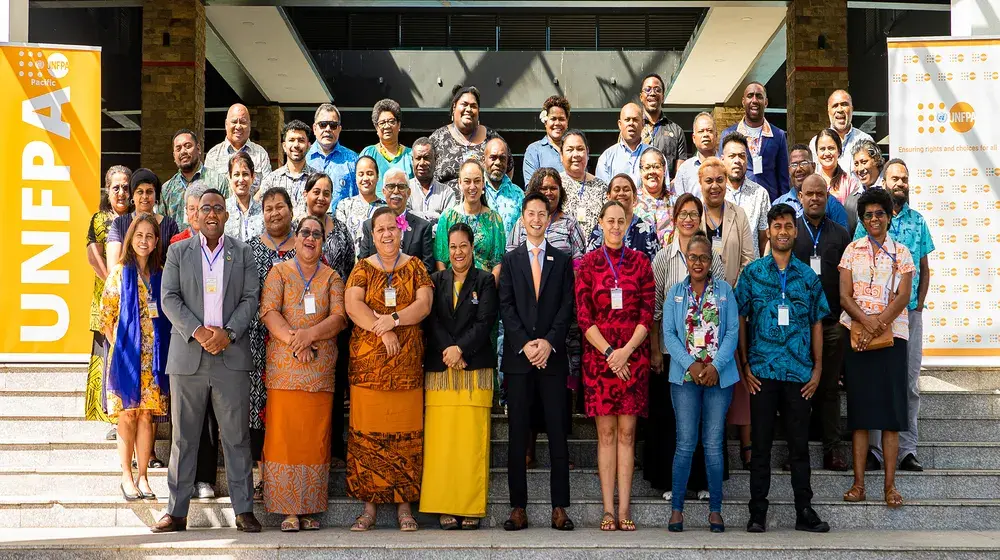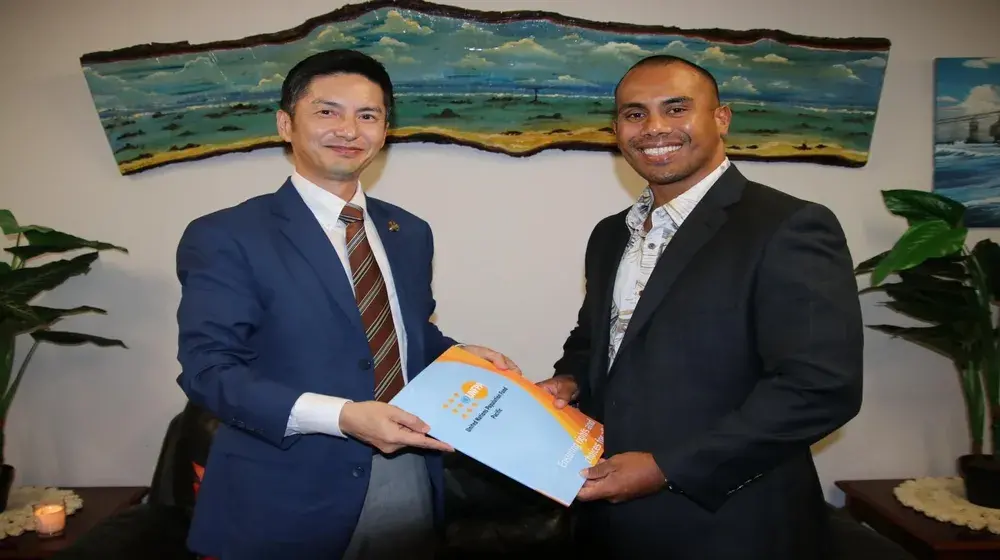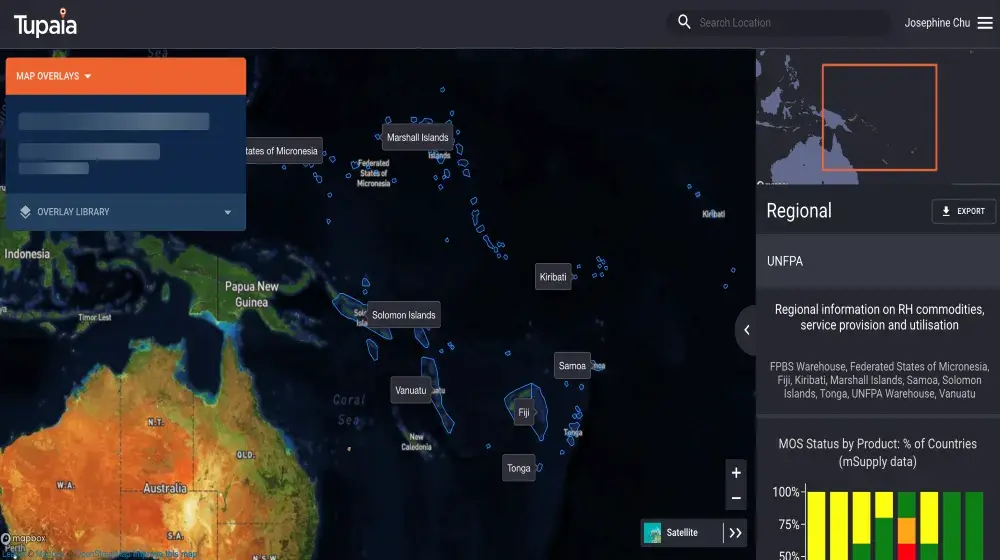FUNAFUTI, Tuvalu - “After the UNFPA training, I am feeling much more confident because I have learnt skills to tackle complications during births,” said Ms. Tamala Olivita, a nurse at Nanumea Health Center, who travelled from the northernmost island of Tuvalu - more than 460 kilometers and a 27-hour boat ride away from Funafuti, the nation's capital - to attend a Emergency Obstetric and Newborn Care (EmONC) training that the Ministry of Health, Social Welfare and Gender Affairs organized for the first time, with support from the United Nations Population Fund (UNFPA) Pacific.
According to the World Health Organization (WHO), 287,000 women died during and following pregnancy and childbirth globally in 2020. Direct causes of these maternal deaths include haemorrhage, obstructed labour, post-partum sepsis, pre-eclampsia, eclampsia and ruptured uterus, and a delay in receiving quality care by a pregnant woman at a medical facility is one of the underlying factors behind maternal mortality. “The majority of maternal and newborn deaths can indeed be preventable, with the right care at the right time,” highlights Dr. Titiola “Titi” Duro-Aina, UNFPA Pacific Chief of Health.
While the Tuvalu Civil Registration and Vital Statistics Report reported only one maternal death in the country between 2012–2015, the incompleteness of the whole death dataset among the small-size population, compounded by the absence of a national maternal and perinatal death surveillance and response (MPDSR) protocol, makes it challenging for the Tuvalu Ministry of Health, Social Welfare and Gender Affairs to calculate an accurate Maternal Mortality Ratio (MMR) for the country. Nonetheless, “Even one maternal death is one too many,” says Ms. Lily Tangisia Faavae, Hon. Permanent Secretary of Health, Social Welfare and Gender Affairs.
Against this backdrop, in June 2023, the Ministry reached out to UNFPA Pacific Sub-Regional Office in Fiji requesting for technical support in strengthening the capacity of healthcare providers across the country to manage complications during the pregnancy, childbirth, and post-partum period. UNFPA supported the Ministry with an EmONC training in Funafuti from 17-20 October, targeting 12 midwives and nurses from the central, northern, and southern islands of Tuvalu.
Dr. Titi of UNFPA Pacific led the EmONC training, using the Pacific Emergency Maternal and Neonatal Training (PEMNeT) curriculum. UNFPA also mobilized the support of PEMNet Trainers from Kiribati and Fiji, thereby also promoting the South-South Cooperation among Pacific member states in this endeavour. During the 4-day training, the 12 healthcare providers from across the country learned how to identify and manage complicated cases during and after delivery, for instance, the management of vaginal bleeding after childbirth, the management of puerperal complications, and newborn resuscitation, based on the global and regional evidence-based best practices and risk management strategies.
“UNFPA is hoping that this EmONC training will improve the overall quality of emergency care provided to mothers and newborns in Tuvalu, ultimately reducing maternal and neonatal mortality and morbidities,” says UNFPA Pacific Chief of Health, Dr. Titi.





